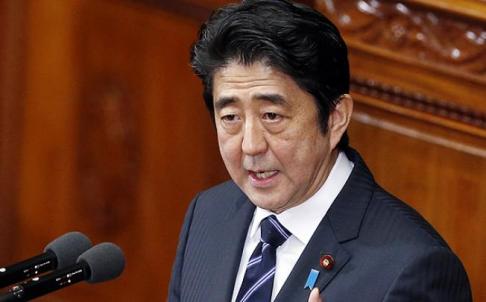
From Shinzo Abe, Project Syndicate: The ongoing disputes in the East China Sea and the South China Sea mean that Japan’s top foreign-policy priority must be to expand the country’s strategic horizons. Japan is a mature maritime democracy, and its choice of close partners should reflect that fact. I envisage a strategy whereby Australia, India, Japan, and the US state of Hawaii form a diamond to safeguard the maritime commons stretching from the Indian Ocean region to the western Pacific. I am prepared to invest, to the greatest possible extent, Japan’s capabilities in this security diamond.
My opponents in the Democratic Party of Japan deserve credit for continuing along the path that I laid out in 2007; that is to say, they have sought to strengthen ties with Australia and India.
Of the two countries, India – a resident power in East Asia, with the Andaman and Nicobar Islands sitting at the western end of the Strait of Malacca (through which some 40% of world trade passes) – deserves greater emphasis. Japan is now engaged in regular bilateral service-to-service military dialogues with India, and has embarked on official trilateral talks that include the US. And India’s government has shown its political savvy by forging an agreement to provide Japan with rare earth minerals – a vital component in many manufacturing processes – after China chose to use its supplies of rare earths as a diplomatic stick.
I would also invite Britain and France to stage a comeback in terms of participating in strengthening Asia’s security. The sea-faring democracies in Japan’s part of the world would be much better off with their renewed presence. The United Kingdom still finds value in the Five Power Defense Arrangements with Malaysia, Singapore, Australia, and New Zealand. I want Japan to join this group, gather annually for talks with its members, and participate with them in small-sized military drills. Meanwhile, France’s Pacific Fleet in Tahiti operates on a minimal budget but could well punch above its weight.
That said, nothing is more important for Japan than to reinvest in its alliance with the US. In a period of American strategic rebalancing toward the Asia-Pacific region, the US needs Japan as much as Japan needs the US. Immediately after Japan’s earthquake, tsunami, and nuclear disaster in 2011, the US military provided for Japan the largest peacetime humanitarian relief operation ever mounted – powerful evidence that the 60-year bond that the treaty allies have nurtured is real. Deprived of its time-honored ties with America, Japan could play only a reduced regional and global role. . . .
Japan’s diplomacy must always be rooted in democracy, the rule of law, and respect for human rights. These universal values have guided Japan’s postwar development. I firmly believe that, in 2013 and beyond, the Asia-Pacific region’s future prosperity should rest on them as well.
Shinzo Abe is Prime Minister of Japan and President of the Liberal Democratic Party. He wrote this article in mid November, before Japan’s elections. (photo: AP) (via James Rogers)
Image: ap%202%2023%2013%20shinzo_abe.jpg
